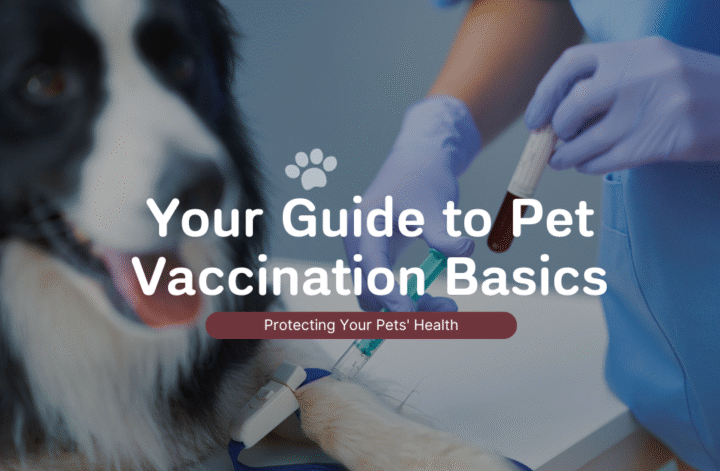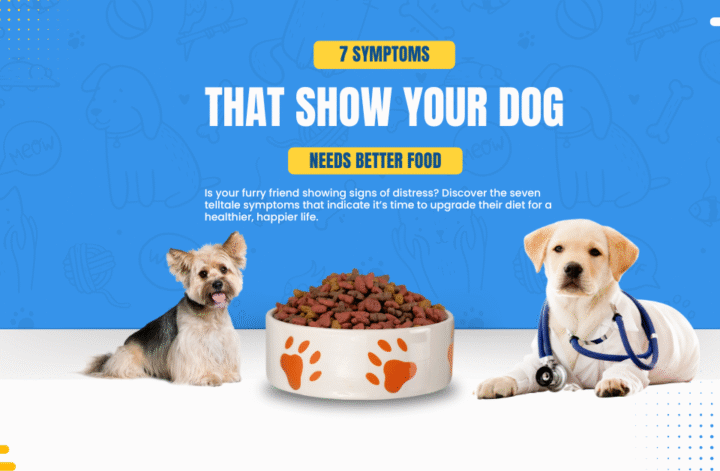As owners of pets, we all wish to safeguard our beloved animals from harm, and one of the best ways to do this is by getting them vaccinated on a regular basis. Just like humans, pets are susceptible to a range of diseases, some of which are fatal if not treated. Vaccination is among the most effective means of avoiding these diseases and keeping our pets healthy. Here we’ll talk about why vaccination is crucial and divide the major vaccines into dogs and cats.
Dogs’ Vaccines
There are a few core vaccines for dogs that will help them get over dangerous diseases.
Let’s talk about the most significant ones:
1. Parvovirus
Parvovirus is also a very infectious virus that infects a dog’s digestive and heart systems. Parvovirus is especially deadly to puppies who have not been vaccinated, and it will cause death. It is spread by parvovirus-infected dog feces, so your dog should not go where infected dogs have been.
2. Distemper
Distemper is a severe viral illness that is spread by direct contact with contaminated fluids, including feces or saliva. It attacks the respiratory tract, gastrointestinal tract, and central nervous system of the dog. Similar to parvovirus, distemper is also potentially fatal, and early vaccination is the greatest safeguard.
3. Hepatitis
Hepatitis is another illness that can be contracted by dogs. There are two forms: one attacks the liver, and the other is linked to kennel cough and has widespread effects on the body. The virus is spread by infected feces and saliva, so vaccination is important to protect your dog. These three illnesses are part of the C3 vaccination regimen, which is the standard vaccination combination for dogs.
4. Kennel Cough
Kennel cough is brought about by two primary strains:
• Bordetella bronchiseptica
• Canine influenza virus
Both of these strains produce flu-like symptoms that include sneezing, coughing, and nasal discharge. Kennel cough is spread by airborne droplets and through saliva, so it is extremely contagious. If left untreated, even mild cases can result in pneumonia in older dogs or those whose immune systems are compromised. When used together with the C3 vaccine, kennel cough vaccines are included as part of the C5 vaccination series, which we advise to provide complete protection.
Dog Vaccination Schedule
Puppies require a vaccination schedule to develop their immunity. This is a common schedule:
• 6-8 weeks: Initial C3 vaccination
• 10-12 weeks: C5 vaccination
• 14-16 weeks: Second C5 vaccination
After your dog has gone through the puppy vaccination course, they will require a booster shot at about 12 months. Subsequently, the C3 vaccine is given every three years, but the kennel cough vaccine (C5) annually.
Vaccines for Cats
Similar to dogs, cats also require protection against a range of diseases.
Six are the most common diseases your cat can be vaccinated for.
Let’s go through each of them:
1. Cat Flu or Upper Respiratory Infections
This is actually a mix of two viruses:
• Feline herpesvirus (or rhinotracheitis) is a frequent infection that results in sneezing, tearing, and nasal discharge. It is transmitted by infected saliva, and in some instances, it can result in more severe secondary infections.
• Feline calicivirus is like herpesvirus and infects the respiratory system of the cat. This virus is prevalent among kittens and may result in mouth ulcers and nasal discharge.
2. Feline Panleukopenia (Cat Parvovirus)
Panleukopenia is a serious and sometimes lethal disorder that infects the gastrointestinal tract of the cat, leading to diarrhea and vomiting. Infection is its mode of transmission, and vaccination is essential against this potentially lethal disease.
3. Chlamydia Infection
Chlamydia is a bacterial disease that infects the upper respiratory tract in cats and results in symptoms such as sneezing, eye and nasal discharge, and congestion. Secondary infections occur if not treated. The positive aspect is that there is a vaccine available to immunize your cat against this bacterial infection. These three diseases constitute the F4 vaccination regime for cats and are important for their well-being.
4. Feline Leukemia Virus (FeLV)
FeLV severely compromises a cat’s immune system, which predisposes them to secondary infections. It is normally transmitted by bites and scratches from other infected cats, but it can also be transmitted through the sharing of food and water bowls. FeLV-infected cats can live with the condition for the rest of their lives and can develop severe complications.
5. Feline Immunodeficiency Virus (FIV)
FIV, or feline AIDS, compromises a cat’s immune system, making it more susceptible to infections. This virus is prevalent in outdoor cats that fight with other cats because it is spread through bite wounds. Cats with FIV usually live longer, but they must receive regular care.
Cat Vaccination Schedule
Kittens, similar to puppies, also require a series of vaccinations:
• 6-8 weeks: First F4 vaccination
• 10-12 weeks: Second F4 vaccination
• 14-16 weeks: Third F4 vaccination
After the final kitten vaccination, your cat will receive their first adult F4 vaccination at 12 months. Then, the F4 vaccine should be administered annually, as well as the FeLV and FIV vaccines yearly.
Vaccination is perhaps the most critical part of maintaining our pets’ health. By keeping up with regular vaccinations, we can keep our pets safe from deadly diseases and allow them to live long, healthy lives. Lykkers, if you have not yet made an appointment for your pet’s vaccination, be sure to schedule one soon to keep them healthy and safe. Your pet will appreciate it!




